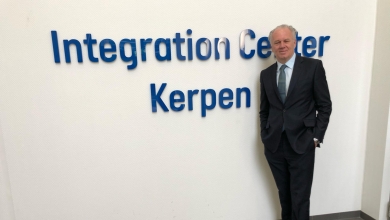
The heads of 30 European tech startups are asking politicians to reform employee stock ownership rules to help them better compete with Silicon Valley peers in hiring.
Europe could be the world’s most entrepreneurial continent, they say in an open letter, but the limited availability of talent to nurture and fuel its blossoming start-up ecosystem is a serious bottleneck to growth. “That’s why we, the founders and executives of Europe’s leading tech businesses, now urge policymakers to put talent at the top of their agenda.”
But policies that currently govern employee ownership across Europe are often archaic and highly ineffective. “Some are so punishing that they put our startups at a major disadvantage to their peers in Silicon Valley and elsewhere, with whom we’re competing for the best designers, developers, product managers, and more,” the letter says.
Over the next twelve months, Europe’s startups will need to hire more than 100,000 employees. Add to that the number of employees that start-ups yet to be born will need to get their ideas off the ground, the group says.
Tech workers in the US own twice as much equity in the companies they work for than counterparts in Europe, according to Index Ventures data. The investment firm adds that there is an imbalance country-by-country, with the UK having the "most favourable" regulatory and tax conditions for start-ups when it comes to stock options and German and Spain being "most in need of change."
In the open letter, the heads of Stripe (STRIP), TransferWise, Criteo, Funding Circle, PayPal-owned iZettle and Farfetch are among those calling for the creation of "start-up friendly employee share ownership schemes." But the letter doesn't describe what those schemes should include.
The UK, US, France and Ireland are seen as most favorable when it comes to employee stock options, according to Index Ventures, due to policies such as tax deferral, the ability to reach lower strike prices than for previous funding round valuations and fewer obligations for companies to pay levies on stock option awards. It adds that the likes of Germany and Spain score lower on this front due to a lack of programs supporting stock options and administrative barriers.


